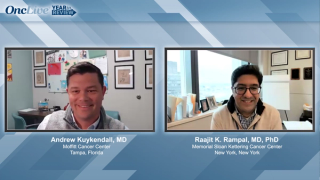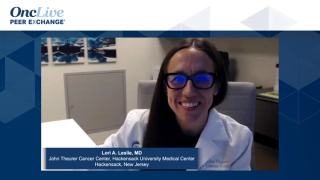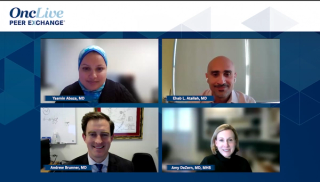
Hematologic Oncology
Latest News
Latest Videos

CME Content
More News

The FDA has granted breakthrough therapy designation to ziftomenib for the treatment of NPM1-mutant acute myeloid leukemia.

Although FAK inhibition alone has displayed modest activity to date, there is interest in developing FAK-targeted therapies for combination regimens.

Jorge J. Castillo, MD, discusses the rationale for evaluating the iopofosine I 131 in Waldenström macroglobulinemia.
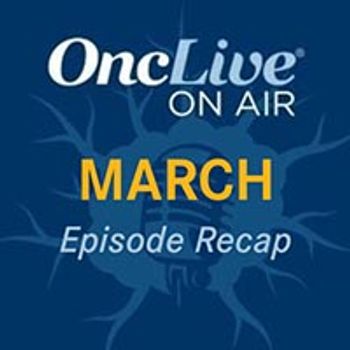
In case you missed any, below is a recap of every episode of OncLive On Air that aired in March 2024.

The FDA has mandated that the boxed warning for all approved CAR T-cell therapies be updated to include the serious risk of T-cell malignancies.

Catherine C. Coombs, MD, discusses strategies for disease classification and management for patients with acute myeloid leukemia.

Experts discuss the FDA's call for a boxed warning for secondary T-cell malignancies on all approved CAR T-cell agents in late January 2024.

The European Medicines Agency has granted orphan drug designation to annamycin for the treatment of patients with acute myeloid leukemia.

Belumosudil elicited sustained responses and generated no new safety signals in patients with chronic graft-vs-host disease.

BVX001 has received orphan drug designation from the FDA for the treatment of patients with acute myeloid leukemia.

Itacitinib prophylaxis showed signals for reducing CRS and ICANS following treatment with axicabtagene ciloleucel in patients with B-cell lymphoma.
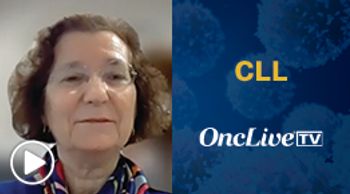
Alessandra Ferrajoli, MD, discusses the importance of shared decision-making when considering the use of BTK inhibitors in hematologic malignancies.

Orca-T demonstrated positive impacts on relapse-free survival and overall survival vs PTCy-based HSCT in acute leukemias and myelodysplastic syndrome.

The regulatory T cell enriched donor cell agent Orca-T was safe and displayed activity in the reduced intensity conditioning setting for patients with advanced hematologic malignancies.

Ibrahim Aldoss, MD, discusses the FDA approval of ponatinib plus chemotherapy in newly diagnosed, Ph-positive acute lymphoblastic leukemia.

Nanatinostat plus valganciclovir generated antitumor activity in patients with EBV-positive PTCL in the NAVAL-1 trial.

Glofitamab plus chemotherapy generated an overall survival improvement vs rituximab plus chemotherapy in relapsed/refractory diffuse large B-cell lymphoma.

In case you missed it, these were the key regulatory decisions made by the FDA in March 2024.

The National Institute for Health and Care Excellence has recommended the use of tisagenlecleucel in pediatric B-cell acute lymphoblastic leukemia.
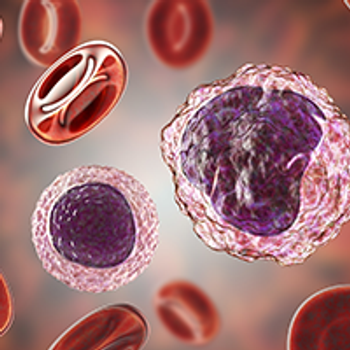
The novel CAR T-cell agent HR001 was effective, with durable responses and a favorable safety profile observed, in relapsed/refractory non-Hodgkin lymphoma.
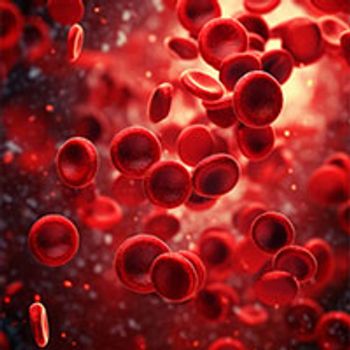
Prophylactic treatment with RGI-2001 plus tacrolimus and methotrexate led to a lower incidence of acute GVHD vs CIBMTR control following allo-HSCT.

Tamibarotene plus azacitidine and venetoclax has received FDA fast track designation for newly diagnosed, unfit, RARA-overexpressed AML.
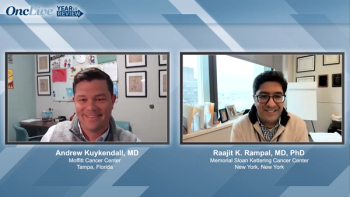
Andrew Kuykendall, MD, and Raajit K. Rampal, MD, PhD, conclude that the increasing complexity in myelofibrosis treatment options, including multiple JAK inhibitors and emerging combination therapies, signals an exciting era of individualized care, yet underscores the need for reevaluating study end points to enhance patient outcomes further.

Andrew Kuykendall, MD, emphasizes the importance of individualizing therapy for patients with myelofibrosis, focusing on improving quality of life and addressing specific issues like anemia and spleen volume, with the understanding that these treatments are palliative and goals should be revisited regularly.
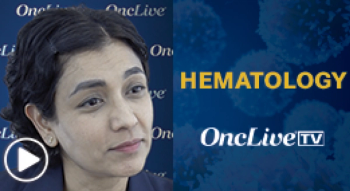
Dipti Patel-Donnelly, MD, discusses key factors to consider when selecting consolidation therapies in high-risk hematologic malignancies.







